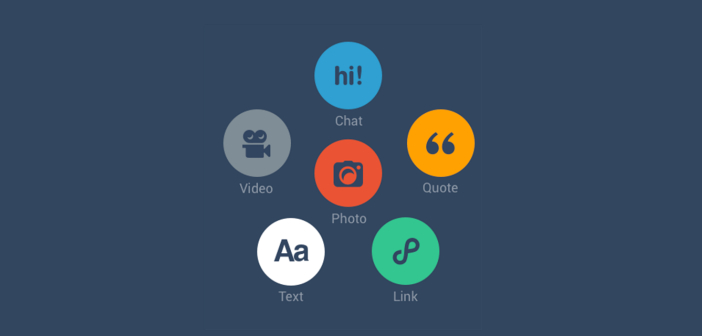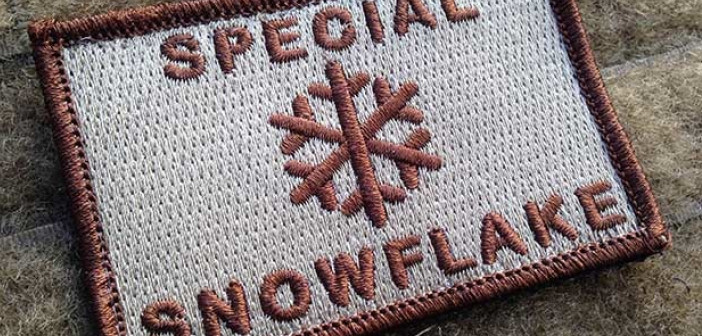What even is a ‘Special Snowflake’?
Yesterday I was listening to the radio. I had just missed the beginning of a chat segment. As I tuned in, I heard the words ‘whiny millennial snowflakes and their safe spaces’ in such a divisive tone that I could only sit and stare at the radio for a moment or two.
I had been planning on writing something about so-called ‘snowflakes’ for so long, and this was the tipping point.
To understand how ridiculous the whole concept of the ‘snowflake’ is, we need to look at the etymology of the word. While there doesn’t appear to be any exact starting point for its popular use among the masses who seem to think that an entire generation of people are all whiny, are all useless and are all responsible for the state of our economy worldwide, I can recall the term ‘snowflake’ being first used on Tumblr. Circa 2011, the words ‘special snowflake’ were used to describe a certain type of Tumblr user who identified as being gender fluid, or demi-sexual. It became a term used to laugh at young people for having the language to express how they felt about themselves.

‘Millennial snowflakes’ started a trend of using neologistic terms to discuss, frankly and honestly, aspects of self-identity that previous generations did not possess the language – and, perhaps, the self-awareness – to express. For this reason, ‘snowflake’ was used to shut down conversation straying from heteronormativity and strictly cis-gender identities. Older generations and conservative millennials were possibly just able to wrap their heads around homosexuality and the existence of trans people, but the language used on Tumblr at this time was a departure from the umbrella terms that were creeping into everyday speech.[pullquote]‘Millennial snowflakes’ started a trend of using neologistic terms to discuss aspects of self-identity that previous generations did not possess the language – and, perhaps, the self-awareness – to express.[/pullquote]
These frequent online discussions appeared to make these more conservative people uncomfortable. On Tumblr, people were able to discuss freely their mental health states – depression, anxiety, bipolar, eating disorders – and although there were toxic corners of the site where people actively encouraged others to remain in unhealthy thought cycles, it was a place where teens and young adults could express themselves safely. A space on the internet where they could be with other like-minded young people. The term ‘snowflake’ was at the time used to describe someone who ‘wanted’ to be treated differently, someone who ‘acted’ as though they were special, and invented reasons to be treated as such.
The neologisms used to describe this wide spectrum of gender and sexuality were universally ridiculed – a reaction which is almost to be expected when young adults and teenagers are involved. There is a wider, more toxic culture of teens being ridiculed for everything they do. Even the concept of being a fangirl is frequently used as a dismissive, colloquialism. With the popular appropriation of the term ‘snowflake’ to mean absolutely anyone between the ages of 18-35, but also possibly meaning absolutely anyone who dares to express a progressive view, the roots of its original use to mock teenagers on a cult blogging site shouldn’t be ignored. Today, ‘snowflake’ is designed to shut down anyone who dares to stray from socially accepted norms.

Listening to that speaker whine about whiny millennials in their safe spaces made many things occur to me. First was that people using the term special snowflake have absolutely no idea where it came from and are subsequently throwing the term around with reckless abandon in an effort to quell discussions about things such as, oh I don’t know, equality, feminism, racism, affordable housing, mental health… Pretty much anything worth talking about. ‘Snowflake’ is dragged out in an effort to shut down debate. It has no other purpose now.[pullquote]’Snowflake’ is dragged out in an effort to shut down debate. It has no other purpose now.[/pullquote]
It’s about as effective as saying ‘Your ma’ as a comeback.
We typically see ‘special snowflake’ being used most predominantly right after the user refers to someone else expressing a progressive view as being ‘butthurt.’ You would probably expect to see this term used in a classroom full of ten year olds, but it is often employed by middle aged, middle class men with nothing better to do. We are living in terrifying times right now, and there are people punching down on anyone attempting to be inclusive or generate discussion on some of the horrible things happening around the world. There are people who do not want the issues society facing to permeate the bubble in which they live. This snowflake nonsense is masking the fear these people have of ever attaining a world where people are unafraid.

This snowflake generation that is apparently too lazy to work or buy a house or start a family is future proofing further generations. We are talking about unfair working hours and unfair working conditions. We are discussing the implications of dealing with mental health issues in workplaces and education. We are striving for an inclusive society, and in doing this insuring future ‘special snowflakes’ don’t die at the age of 60 from stress-related heart disease. We are starting to call time on the ludicrous set up our ancestors left behind, and we are calling bullshit on the notion that admitting we might not be able to do something isn’t lazy, it’s saving us.
We are creating spaces for people to be safe in. There are those of us in this world who are not afforded the social luxury of being middle class, cis, heterosexual and neurotypical. So if wanting to protect other humans is classed as ‘whiny,’ then I’m proud to be a whiny millennial. And if wanting to thrive in in a culture that is determined to talk down to anyone they perceive as different is being a ‘snowflake,’ then I’m proud to be one of them too.
